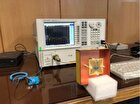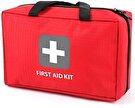Top Tips for Conducting Valuable Interviews

The over nine-year old article is simply offering some tips to conduct workable interviews with scientists which are as follows:
1.It's nice to be nice
When you’re asking someone for their time, be clear about what exactly you would like from them. Your potential interviewee might get hundreds of emails a day, so make yours concise, simple and direct.
In the subject line make your purpose clear (Interview request for New Scientist magazine). In the body, be friendly but not verbose. State how urgent your deadline is and perhaps suggest times you’re free. I’d like no more than 30 minutes of your time. I can come and meet you or we can talk by phone or Skype. Do you have any time Tuesday 10th, perhaps between 1 and 5pm? Remember, being polite costs nothing.
2.Get organized
Where will you meet and when? It sounds simple but these things can go wrong very easily. Pick a convenient place with the privacy and quiet you need. Check time zones and dates carefully, to avoid being stood up – or worse, standing your interviewee up!
3.Keep a record
Some writers take notes as they interview, others use an electronic recorder or phone. If you want to record, make sure that you ask permission from the person you’re interviewing. It’s up to you how you record your conversation, but make sure that your chosen method is reliable. Are the batteries charged? Is the volume high enough? Do you know how to turn it on? It also needs to be as stress-free as possible. You don’t want to miss all those juicy quotes because you’re scribbling down the answer to the previous question or worrying about the recorder.
4.Relax
You might have to ask probing or personal questions of an interviewee you barely know. This can be awkward for both parties. Make small talk when you first start chatting to try and break the ice – how was their journey? Have they been doing a lot of interviews?
5.It's not about you
Drafting questions beforehand can help you think about what you want to ask and in which order – but be flexible.
While it’s great to have a conversation rather than a terse back-and-forth, the main point of an interview is to get the best, most interesting and honest responses from your interviewee, not to show off what you know on a topic, or to share your personal experiences.
If you’re one of nature’s nervous babblers, then try and stick to your drafted questions to avoid rambling for minutes without actually asking anything.
6.Go with the flow
Interviewees often go off on tangents. This can be great for finding out new, unexpected things. Keep half an eye on your question list, but make sure you’re engaging with this unanticipated information. After all, it could be the making of your piece.
If, however, your interviewee is talking at length about something you know isn’t relevant, you need to steer them back. Breaking eye contact, putting down your pen and minimizing your active listening mm-hmms can all help get the message across in a more subtle way than interrupting them (although you might need to do this too).
7.Talk tough
You might need to ask challenging questions. Rather than directly criticizing your interviewee, you could frame a difficult question another way: “What have critics of your work said about this paper?”, “Our readers might think …”.
8.Embrace silence
The thing about silence is that people feel compelled to fill it. Keeping quiet after a person answers you can be as effective as asking another question: they carry on talking, so you get more detail than they might otherwise have offered. If you’re trying to find out specific information – how much the failed project cost, say – you could suggest a figure and wait for their response (“OK, but was it under £20 million?”). If you keep it buttoned, they may feel compelled to speak.
Do …
Use open questions. Closed questions (that can be answered with a yes or no) have their place in an interview, but open questions can invite more thoughtful answers.
Be mindful of your body language. Keeping your arms uncrossed, smiling and good (but not continuous) eye contact can help put your interviewee at ease.
Break out of the norm. You don’t have to stay sat in a person’s office. You might get your best material while queuing up with them to pick up their dry cleaning.
Wrap up well. Ask at the end of the interview if there’s anything else they want to add.
Don't …
Be shy about asking for more. If you need more detail from an answer, just ask. “Can you tell me more about that?”, “When you say ‘It was unexpected’, in which ways do you mean?”
Stop listening too soon. It’s often said that you can get the best material at the end of an interview, as your interviewee relaxes. Keep listening, and even perhaps recording, so you don’t miss out on any unexpected gems.
Skimp on the research. You don’t need to show off all you know, but you do need to have sufficient background on your interviewee to be able to ask the right questions.
Panic! Unless things go disastrously wrong, most interviewees will be happy to follow up any queries with you by phone or email after an initial interview.
4155/ Mohammad Jafari





















